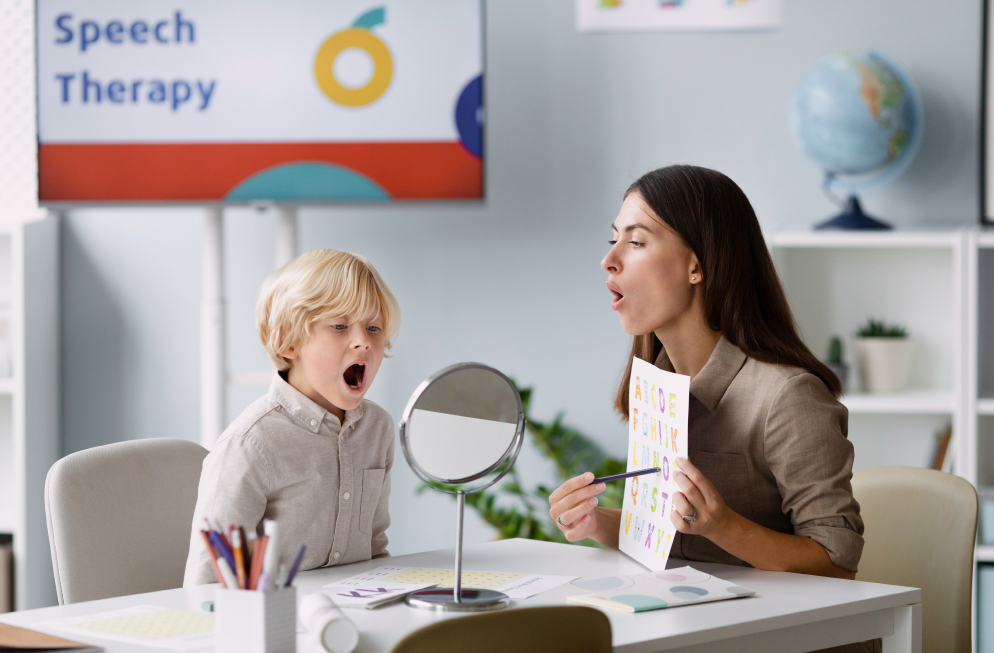Is a speech and communication disorder characterized by rapid, disorganized speech that is often difficult to understand. Individuals who clutter may speak quickly and blend words or syllables together, making their speech sound jumbled or unclear. This can lead to difficulties in communication and understanding, both for the individual with cluttering and for those trying to interact with them.
The symptoms of cluttering include
Rapid speech that sounds jumbled or rushed (e.g. “Wwwwwell I just saw my old friend and we talked about what we’ve done since school, and then she went out to eat with a friend and I went home”).
Excessive pauses within phrases or sentences (e.g., “I, um, really like it).
Irregular speech patterns, including frequent pauses and/or changes in the normal rhythm of speech.
Difficulty planning what to say next, which can lead to disruptions in the flow of speech.
What causes cluttering?
The exact cause of cluttering is not known, but it is thought to be a combination of genetic and environmental factors. Cluttering may run in families, so there may be a genetic component. In terms of the environment, things like stress or anxiety can trigger or worsen cluttering.
Psychological Effect on People with Cluttering
While the psychological effect of cluttering has not been widely researched, it is generally believed that cluttered speech does not have the same negative psychological effect as stuttering. This is likely because people who clutter typically don’t experience anxiety about their speech.
However, some research has suggested that people who clutter may experience social anxiety and/or avoidance behavior. If your child is experiencing social anxiety or other psychological symptoms as a result of their cluttering, it’s important to seek professional support from a speech-language pathologist who can help them manage their condition and live a full, happy life.



